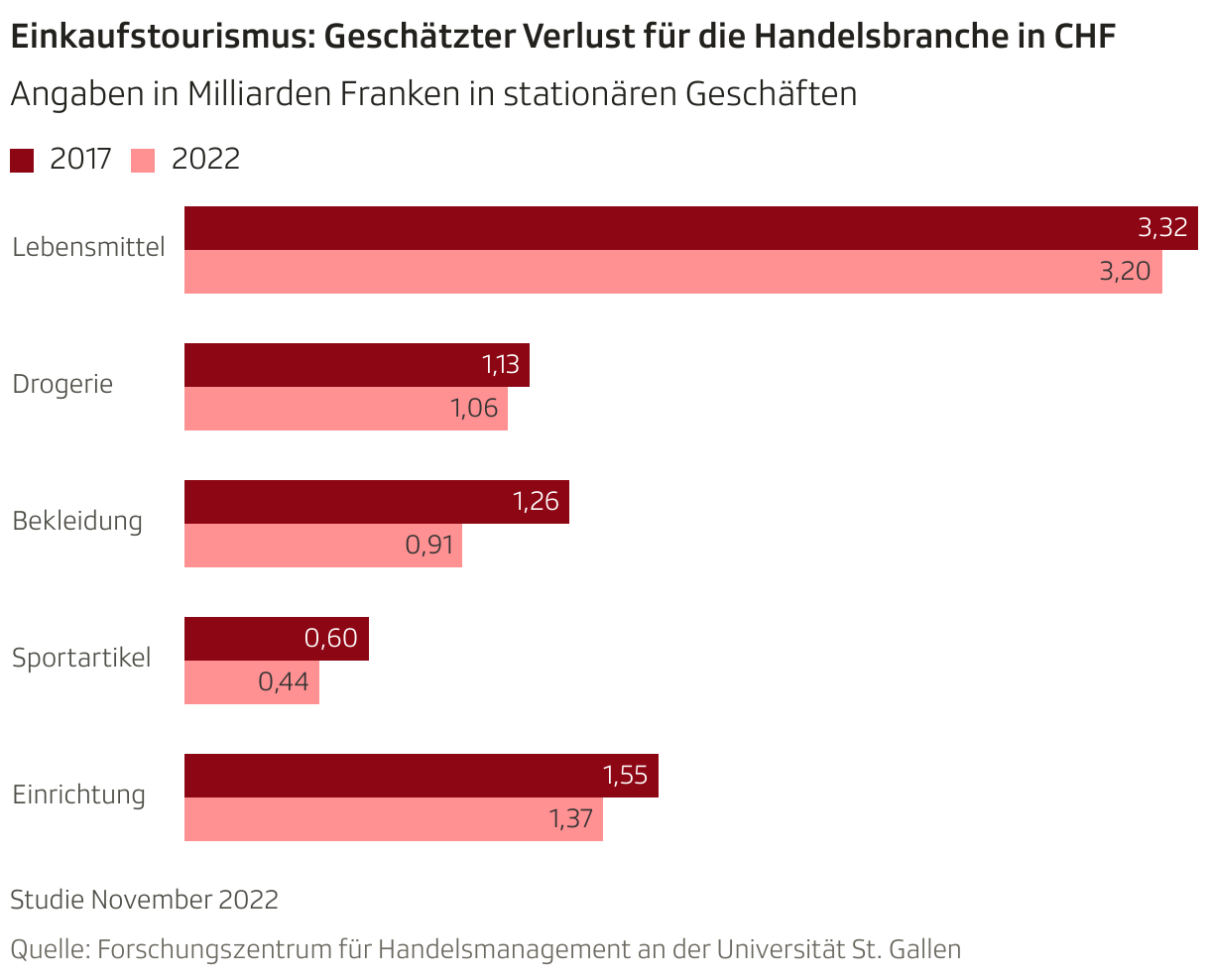Contents
According to the “Tagesanzeiger”, goods purchased abroad will in future be taxed at customs starting from half the amount. A look at the most exciting points.
The initial situation: Anyone who imports goods into Switzerland from abroad must generally pay Swiss VAT. Not so if the value of the goods is less than 300 Swiss francs. This limit applies per day and is also called the value-free limit. According to research by the “Tagesanzeiger”, the federal government now wants to reduce this to 150 francs and thus make shopping tourism less attractive. This repeatedly falls into disrepute because money flows from Switzerland to nearby countries, thereby damaging domestic retail trade. The limit for postal items is already lower, namely 65 francs.
Legend:
Swiss people near the border in particular are often drawn to shopping abroad. (symbol image)
Getty Images/iStockphoto/Yaroslav Astakhov
Damage caused and development: A study by the University of St. Gallen estimated last year’s damage to the Swiss retail trade from shopping tourism at 8.5 billion francs. According to the study, the amount of damage is declining slightly; in 2017 it was 9.05 billion. A decline of ten percent has been observed in stationary stores, which cannot be compensated for by online shopping tourism, which is growing by 20 percent, because it is smaller. A recent analysis by the Swiss Retail Federation also assumes annual damage of 8.5 billion francs for the local retail trade.
Fight against shopping tourism: Attacking the value-free limit is by no means a new idea. The border cantons in particular repeatedly advocate lowering or abolishing the border. There are currently several class initiatives pending in the federal councils, including one from the canton of Thurgau. This requires that VAT must be paid on all imports if the foreign VAT is reclaimed. A sensible measure for the University of St. Gallen: The study comes to the conclusion that with a value-free limit of 50 francs, shopping tourism would decline by 33 percent.
Arguments against the reduction: The managing director of the Foundation for Consumer Protection, Sara Stalder, doesn’t believe in reduction: “That’s combating symptoms.” Stalder believes that the reduction will entail a lot of bureaucracy, place a heavy burden on administration and will not curb shopping tourism. “In the worst case scenario, it brings more traffic.” This is because people then simply shopped more often because they wanted to take advantage of the value-free limit. For Stalder, the solution is different: reduce the prices of imported products. Because as soon as these come to Switzerland, they suddenly become miraculously more expensive than abroad. She blames the high margins in Switzerland for this. The retailers would therefore have to correct their prices now. “Then there would immediately be less shopping tourism.”
Arguments for the reduction: Former National Councilor Kurt Egger, also the driving force behind the Thurgau class initiative, does not fear an increase in traffic volumes with a lower value exemption limit. “It’s an effort, after all.” Traveling abroad always takes half a day. Egger estimates that there will probably be a few people near the border who often shop abroad, but overall the number of shopping tourists will decrease. In addition, tax fairness is one of Egger’s main concerns: VAT must be paid either in Germany or Switzerland; the state is dependent on this. Since this is higher in Germany than in Switzerland, Egger assumes that most people would choose the Swiss tax.


